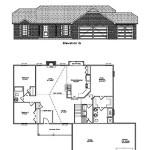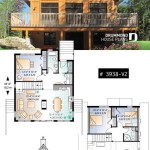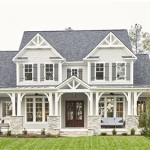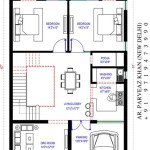Eco House Planning Permission
Gaining planning permission for an eco-house can be a complex process, requiring careful consideration of various factors. This article outlines the key aspects involved in navigating the planning system for eco-home construction.
Understanding Eco-House Design Principles
Eco-houses prioritize sustainability and minimize environmental impact through innovative design and material selection. Key elements often incorporated include:
- Renewable energy sources (solar, wind, geothermal)
- High levels of insulation and airtightness
- Water conservation features (rainwater harvesting, greywater recycling)
- Sustainable building materials (locally sourced, recycled content)
- Passive design principles (optimizing natural light and ventilation)
- Minimization of waste during construction and operation
- Landscaping that supports biodiversity
Preliminary Site Assessment
Before submitting a planning application, a thorough site assessment is crucial. This evaluation should consider:
- Local planning policies and regulations
- Ecological sensitivity of the area
- Topography, drainage, and flood risk
- Existing infrastructure (utilities, access roads)
- Potential impact on neighboring properties
Engaging with Local Planning Authorities
Early engagement with local planning authorities is highly recommended. Pre-application advice can be invaluable, providing insights into specific requirements and potential challenges. Discussions may involve:
- Clarification of local planning policies related to sustainable development
- Identification of any potential conflicts with existing planning designations
- Discussion of design proposals and potential mitigation measures
- Guidance on the required documentation for a formal planning application
Preparing the Planning Application
A comprehensive planning application is essential for securing approval. Key components typically include:
- Detailed architectural drawings and plans
- Site layout plan indicating boundaries, access, and landscaping
- Sustainability statement outlining the eco-friendly features of the design
- Energy performance assessment demonstrating compliance with building regulations
- Drainage strategy addressing rainwater management and wastewater disposal
- Ecological assessment evaluating potential impact on local wildlife and habitats
- Transport statement outlining access arrangements and parking provision
Addressing Potential Objections
Planning applications for eco-houses can sometimes face objections from neighbors or community groups. Common concerns may include:
- Visual impact and compatibility with the surrounding area
- Potential impact on traffic and parking
- Concerns about noise or light pollution
- Impact on local amenities and services
Addressing these concerns proactively through consultation and providing clear evidence to support the application can significantly improve the chances of approval.
Navigating the Planning Process
The planning process typically involves several stages, each with specific timelines and procedures. These stages include:
- Submission of the planning application
- Validation of the application by the local planning authority
- Public consultation period
- Assessment of the application by planning officers
- Decision by the planning committee (in some cases)
- Potential for appeals if the application is refused
Building Regulations and Compliance
Separate from planning permission, building regulations approval is also required before construction can commence. Building regulations ensure that the construction meets specific standards related to:
- Structural integrity and fire safety
- Energy efficiency and thermal performance
- Ventilation and indoor air quality
- Accessibility and safety features
- Water supply and drainage systems
Working with Professionals
Navigating the planning and building regulations processes can be complex. Engaging experienced professionals, such as architects, planning consultants, and energy assessors, can streamline the process and increase the likelihood of a successful outcome. Their expertise can assist with:
- Developing a compliant and sustainable design
- Preparing a robust planning application
- Liaising with local authorities and addressing potential objections
- Ensuring compliance with building regulations

The Eco House Myth Why Green Credentials Alone Won T Get You Planning In England Urbanist Architecture Small Company London

The Eco House Myth Why Green Credentials Alone Won T Get You Planning In England Urbanist Architecture Small Company London

The Eco House Myth Why Green Credentials Alone Won T Get You Planning In England Urbanist Architecture Small Company London

How To Get Planning Permission For An Off Grid Self Build Home

Hph112 Getting Planning Permission For A Self Build With Phill Skill House Help

The Eco House Myth Why Green Credentials Alone Won T Get You Planning In England Urbanist Architecture Small Company London

Two Ecohomes Secure Planning Permission Tracing Green

How To Get Planning Permission For Your Eco Home

Two Ecohomes Secure Planning Permission Tracing Green

The Eco House Myth Why Green Credentials Alone Won T Get You Planning In England Urbanist Architecture Small Company London








